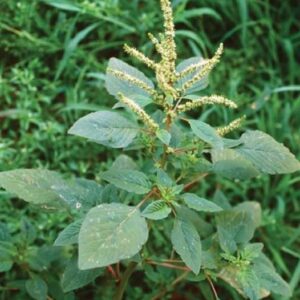A Cup of Comfort With Hidden Risks
For many of us, few things feel as soothing as holding a warm cup of tea between our hands. The gentle steam, the calming aroma, and the familiar ritual of sipping slowly can ease both the body and the mind. Among the many herbal teas enjoyed by older adults, ginger tea stands out as one of the most popular.
Praised for centuries as a natural remedy, ginger tea is known to calm nausea, ease indigestion, reduce bloating, and even help soothe sore throats and coughs. For seniors, who often face multiple health concerns, the promise of an all-natural, comforting beverage can sound almost too good to be true.
And in many cases, ginger tea is good for you. Research suggests it may help regulate blood sugar, support heart health, and improve circulation. It also carries anti-inflammatory and antioxidant properties, which means it can reduce muscle aches, support the immune system, and even help with stress.
But like most remedies—natural or not—ginger tea isn’t right for everyone. For some, it can actually cause more harm than good, especially when combined with certain medical conditions or medications.
That’s why it’s important for seniors to understand both the benefits and risks before adding ginger tea into their daily routine.
The Benefits of Ginger Tea for Older Adults
Before diving into the warnings, it’s worth remembering why ginger tea has earned such a loyal following.
- Digestive Relief: Ginger is famous for easing nausea and motion sickness. For older adults with sensitive stomachs, it can calm indigestion and reduce bloating.
- Anti-Inflammatory Properties: Many seniors live with joint pain or arthritis. Ginger’s natural anti-inflammatory compounds may offer mild relief.
- Heart and Circulation Support: Ginger may help improve blood flow and circulation, which is important for cardiovascular health.
- Immune Boost: With antioxidant qualities, ginger tea may strengthen the body’s defenses against seasonal colds and infections.
- Stress and Relaxation: Beyond the physical benefits, the ritual of tea itself can reduce anxiety and bring a sense of calm.
Clearly, ginger tea has much to offer. But like any powerful natural remedy, it should be used wisely.
When Ginger Tea Can Be Risky
For most healthy adults, enjoying a cup or two of ginger tea is perfectly safe. But for seniors with certain conditions—or those taking prescription medications—ginger can create complications. Here are some important situations where caution is needed.
1. Seniors With Diabetes or Low Blood Sugar
Ginger has been shown to lower blood sugar levels. For someone not taking medication, this may be helpful. But for seniors who already take insulin or medications such as metformin, ginger tea could push blood sugar too low, causing dizziness, confusion, or even fainting spells.
Tip: If you live with diabetes, check with your doctor before making ginger tea a daily habit. Monitoring your blood sugar closely is key.
2. Seniors With Bleeding Disorders
Ginger can thin the blood slightly, which is why some people feel warmer after drinking it. However, for seniors with conditions like hemophilia, Von Willebrand disease, or anyone on blood-thinning medications such as warfarin, ginger tea may increase the risk of excessive bleeding.
Tip: If you bruise easily, have a bleeding disorder, or take anticoagulant medications, it’s best to limit ginger tea or avoid it altogether.
3. Seniors With Gallstones
Gallstones are more common in older adults, and ginger tea may not be a good match in this case. Why? Because ginger can stimulate bile production, which could aggravate gallstone symptoms or even trigger painful attacks.
Tip: If you’ve ever been diagnosed with gallstones, talk with your healthcare provider before drinking ginger tea regularly.
4. Seniors With Low Blood Pressure
One of ginger’s benefits is that it can slightly lower blood pressure. While this sounds positive, it can be dangerous for seniors who already struggle with low blood pressure or who take medication to manage hypertension. Too much ginger tea could cause lightheadedness, dizziness, or even fainting.
Tip: If you feel woozy after drinking ginger tea, check your blood pressure and talk with your doctor.
5. Seniors With Acid Reflux or GERD
While ginger often helps with nausea, it can backfire for those who suffer from acid reflux or GERD. For sensitive individuals, ginger may irritate the esophagus, leading to more heartburn and discomfort.
Tip: If you have reflux, try sipping smaller amounts of ginger tea, or consider gentler options like chamomile or peppermint tea.
Safe Ways to Enjoy Ginger Tea
For seniors without these health concerns, ginger tea can still be a safe and enjoyable part of daily life—if consumed in moderation. Here are some guidelines:
- Limit Your Cups: Most experts recommend no more than 1–3 cups per day.
- Use Fresh or Dried Ginger: Fresh slices of ginger root or high-quality dried ginger are better than overly processed powders.
- Pair With Food: Drinking ginger tea with a light snack can reduce the risk of stomach irritation.
- Check Medications: Always ask your doctor or pharmacist about possible interactions with your prescriptions.
Alternatives for Seniors Sensitive to Ginger
If you discover ginger tea doesn’t agree with you, don’t worry—there are many other herbal teas that can bring comfort and health benefits.
- Chamomile Tea: Known for calming the nerves and promoting sleep.
- Peppermint Tea: A gentle aid for digestion and bloating.
- Rooibos Tea: Naturally caffeine-free and rich in antioxidants.
- Lemon Balm Tea: Supports relaxation and mild stress relief.
Choosing the right tea depends on your personal health and preferences. The most important thing is to listen to your body and find what feels good for you.
The Bottom Line for Seniors
Ginger tea is one of nature’s oldest remedies, and for many people, it can truly support health and well-being. But like all powerful natural treatments, it comes with cautions.
For seniors—especially those managing multiple conditions—it’s always wise to be careful. If you have diabetes, bleeding disorders, gallstones, low blood pressure, or acid reflux, ginger tea might not be the best choice for you.
The good news? With guidance from your healthcare provider, you can still enjoy safe herbal teas that bring warmth, comfort, and health benefits without unwanted side effects.
Because when it comes to senior wellness, the best medicine often comes in the simplest forms—a kind word, a gentle walk, and sometimes, a soothing cup of tea.





